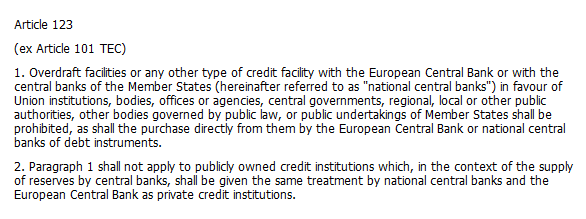
I asked myself what exactly the problem is with the #Cosco deal to get a share of one of the four terminal's of Hamburg's port (and other ports in Europe).
Here are some points about China, ports, national security, cyber threats, and the Maritime Silk Road.
A Thread 🧵:
Here are some points about China, ports, national security, cyber threats, and the Maritime Silk Road.
A Thread 🧵:
There is a possible compromise on the #Cosco deal with the share being reduced to 24.9% just short of the share that would grant them more influence on Hamburg's port.
That is clearly better than before but I am still not sure whether this is a good idea.
t-online.de/region/hamburg…
That is clearly better than before but I am still not sure whether this is a good idea.
t-online.de/region/hamburg…
While the often cited Piraeus port - where Cosco owns 100% of the container terminal and 67% equity in Piraeus Port Authority - is clearly an economic success story for Greece it brought a lot of political trouble and a strategic problem for the EU and the US.
China used heavy-handed diplomacy to motivate Greece to block an EU statement at the United Nations criticizing China’s human rights record. They even called the EU statement an "unconstructive criticism of China."
nationalreview.com/2018/05/china-…
nationalreview.com/2018/05/china-…
Additionally, Cosco's ownership of Piraeus will further facilitate visits of the Chinese navy, similar to those that already happened in 2015 and 2017.
greekreporter.com/2017/07/24/chi…
greekreporter.com/2017/07/24/chi…
This is a similar pattern to what can be observed at China-funded commercial ports throughout the Indo-Pacific.
In 2013 China adopted a global infrastructure development strategy called the Belt and Road Initiative (BRI).
In 2013 China adopted a global infrastructure development strategy called the Belt and Road Initiative (BRI).
Since then 🇨🇳 has acquired more and more support for this initiative. A key component of the BRI is the Maritime Silk Road (MSR), which aims to enhance 🇨🇳’s trading position through port development.
This is portrayed by 🇨🇳 leaders as creating win-win situation for all nations.
This is portrayed by 🇨🇳 leaders as creating win-win situation for all nations.
However, (un-)surprisingly the real reasons behind the MSR might be a bit different.
Thorne and Spevack analyze 15 China-funded port projects to assess the behavior of the Chinese state and the Chinese companies involved.
c4ads.org/reports/harbor…
Thorne and Spevack analyze 15 China-funded port projects to assess the behavior of the Chinese state and the Chinese companies involved.
c4ads.org/reports/harbor…
"these investments are not principally driven by the concept of win-win development as Beijing claims. Rather, the investments appear to generate political influence, stealthily expand China’s military presence, and create an advantageous strategic environment in the region."
Furthermore, they find that "Chinese analysts unofficially discussing port investments routinely prioritize China’s national security interests over the objective of mutually beneficial economic development, contradicting the position of official policy documents."
"Port investments are viewed as vehicles with which China can cultivate political influence to constrain recipient countries and build dual-use infrastructure to facilitate Beijing’s long-range naval operations."
Concerns about whether such port investments perform a strategic rather than purely commercial function are given extra weight by the fact that most of these investments are made by state-owned enterprises.
While I doubt that the small investment in Hamburg's port will give China similar leverage on Germany or that we have to deal with an increasing number of visits from the Chinese navy (fun fact: they already visited Hamburg in 2015),
hamburg.de/schiffe/443565…
hamburg.de/schiffe/443565…
there is still reason to be concerned about the investment of a state-owned company from a strategic competitor that happens to an autocracy and an aspiring superpower.
The real problem for a digitalized modern economy is probably data and cybersecurity. As the Economist Intelligence Unite notes: "Besides facilitating trade, ports provide broader economic value, such as valuable data on logistics and the local economy."
country.eiu.com/article.aspx?a…
country.eiu.com/article.aspx?a…
"Today’s smart ports and terminals are adopting new technologies — remote operations, autonomous systems, and integrated information and communications platforms — to better track and monitor ships and expedite deliveries, warehousing, and customs."
marsh.com/us/industries/…
marsh.com/us/industries/…
"Although the opportunity to take advantage of higher freight volumes and improved throughput outweigh the associated risks, if managed correctly, increased reliance on technology comes with increased exposure to cyber risk."
"Further, greater data capabilities and connected technologies — both internally and with external stakeholders — introduce new access points and vulnerabilities that could provide today’s advanced threat actors an entry point into a network."
From the debate about 5G and Huawei we know that Chinese equipment can represent a national security hazard for Western countries as it could be used as a gateway for Chinese espionage and sabotage of critical infrastructure.
Construction enables China to collect intelligence on port infrastructure, establish a dependency on Chinese technology (i.e. Huawei) and expertise, and ensure long-term interoperability with Chinese materials and technology.
apps.dtic.mil/sti/citations/…
apps.dtic.mil/sti/citations/…
Furthermore, Dr. Eyal Pinko, a former Israeli intelligence officer pointed out that "Chinese port operators could closely monitor the movement of U.S. and NATO warships,
asiatimes.com/2019/06/are-ch…
asiatimes.com/2019/06/are-ch…
gather information about their maintenance operations and have access to sensitive systems and equipment through interception of electromagnetic signals, intelligence-gathering by use of electronic sensors, visual and human intelligence."
To summarize, Clarke (2020): "Consequently, any port asset managed, operated, or developed by Chinese state-owned corporations is at risk for exposing allied and friendly information for use at a more opportune time in the future."
PS. I guess my thread was a bit late to change the course of history ;)
https://mobile.twitter.com/tagesschau/status/1585159552466653185
@threadreaderapp please unroll!
• • •
Missing some Tweet in this thread? You can try to
force a refresh








